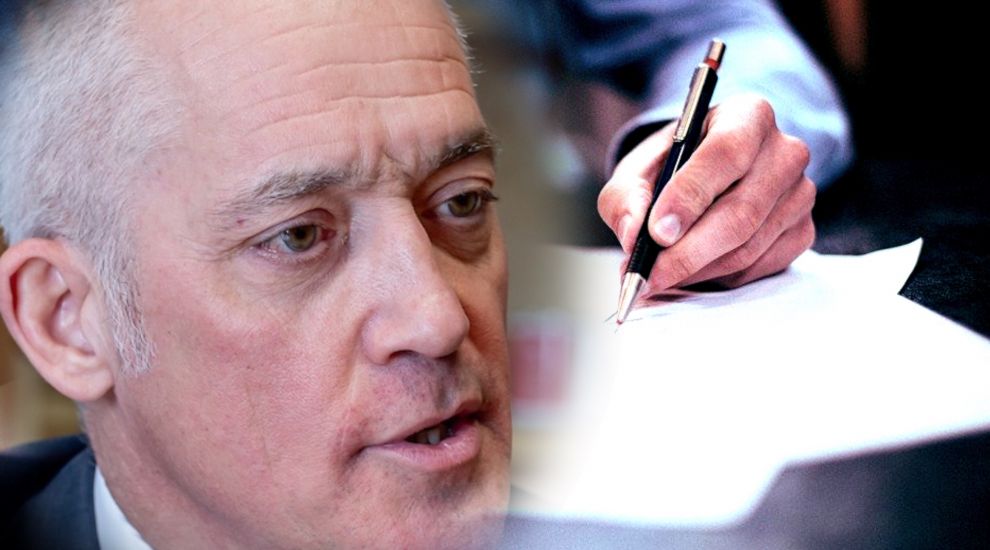


The Government is refusing to release the minutes of crucial meetings in which its former CEO’s second job and £500,000 departure payout were discussed – despite having previously pledged to publish them “as soon as they are ready.”
A spokesperson confirmed yesterday that the Government would not be making the requested documents publicly available because some of the information contained in them is “legally privileged.”
Express has repeatedly requested the documents relating to Charlie Parker’s Non-Executive Directorship at UK real estate firm New River and his abrupt exit since last year.
A request was first made to the States Employment Board (SEB) – a panel of politicians acting as Mr Parker’s official employer – under the Freedom of Information Law in November.
Express had asked for minutes of meetings between 26 October – when news of Mr Parker’s second job broke – and 11 November, after Mr Parker’s departure had been confirmed and the Chief Minister survived a vote of no confidence triggered by the saga.
In December, the SEB said these could not be made public because they had not been completed.
When Express followed up three months later, a spokesperson for SEB Vice-Chair Constable Richard Buchanan said on 26 March that his panel was “working to get the minutes prepared and will publish them as soon as they are ready.”
But it’s now emerged that minutes of all 10 meetings relating to Mr Parker’s secondary employment and departure between October and December were ready by the point this reply was received - eight had been officially approved in January, with the remaining two on 22 and 25 March.
Asked for the minutes again, an SEB spokesperson replied yesterday: “Once the minutes were approved they were reviewed with a view to potential publication. The latest advice has found that the minutes contain legally privileged information and therefore will not be published.”
Express has since asked whether the minutes could be released in redacted form to the public and is awaiting a reply.
Charlie Parker’s half-a-million ‘golden handshake’ to avert legal action – the nature of which has not been confirmed –was revealed in the Government’s accounts last week.
For what’s believed to be the first time, the accounts’ auditors signed them off with a ‘qualified opinion on regularity’ from auditors – an official statement raising concerns that, in their view, proper processes governing spending were not been followed in relation to the CEO’s exit.
It came on the same day that the Government’s spending watchdog, Comptroller and Auditor General Lynn Pamment, released a report confirming that the payment broke rules covering how public money should be handled and was more than what was laid out in his employment contract. This was despite a previous pledge from the Chief Minister that Mr Parker would receive no more than his contractual entitlement.
She also expressed concerns that recommendations from her predecessor for improving contract terminations with senior Government employees, which came following the £500,000 departure of former CEO Bill Ogley, had not been acted on.
Ms Pamment did, however, describe the sum paid to Mr Parker as “not unreasonable” in “light of the potential claims that the employer might have faced and the costs of defending them.”
Her report also revealed:
While the Comptroller’s report went some way to illuminating the circumstances surrounding his abrupt exit from the top role in Jersey’s civil service, several questions remain unanswered, such as why the SEB initially gave Mr Parker approval to continue with his second job before withdrawing it later, and why Mr Parker was given a second, fixed-term contract, as revealed by Express.
The Public Accounts Committee (PAC) - a panel of politicians responsible for scrutinising how taxpayers' money is spent - has confirmed that it will be launching a formal review into what happened.
CLICK HERE to share your views with PAC.
(From the report of the Comptroller and Auditor General)
Comments
Comments on this story express the views of the commentator only, not Bailiwick Publishing. We are unable to guarantee the accuracy of any of those comments.